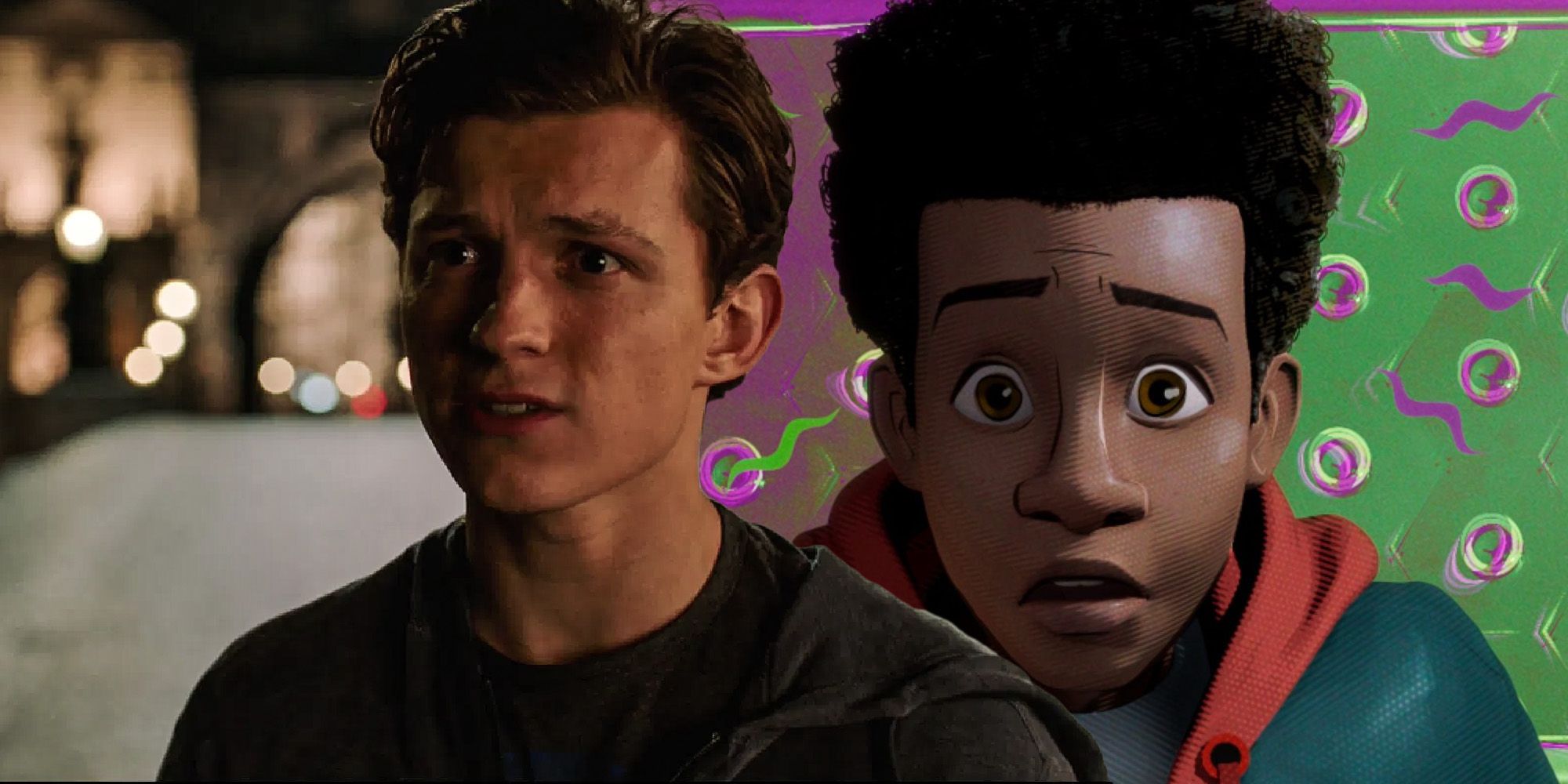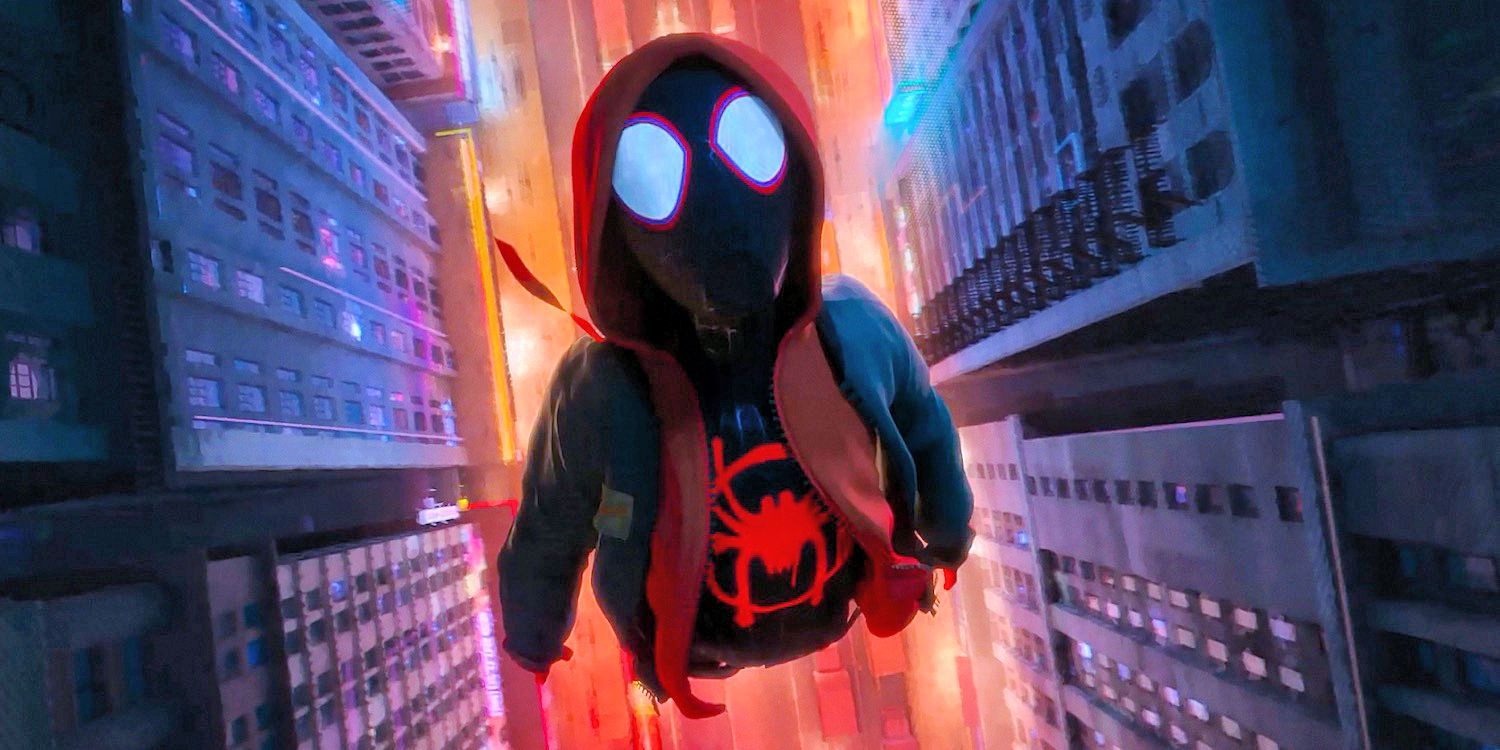Spider-Man 3 will soon be united with its creative ancestors by way of the multiverse in the MCU's upcoming phase 4. That mirrors the introduction of the same story device in 2018's Spider-Man: Into the Spider-Verse, but the upcoming Far From Home sequel needs to look beyond fan service and to its animated predecessor to ensure its success. With Alfred Molina reprising his role as Doc Ock, Andrew Garfield and Jamie Foxx returning from the Amazing installments in the series, and Tobey Maguire and Kirsten Dunst seemingly on their way into the cast list, it's easy to let expectations for this third iteration of Spidey's MCU stand-alones run wild. While the news is exciting, it's important to remember that fan service alone does not guarantee a good movie alone. And what better teaching tool to demonstrate this lesson than the film upon which this multiverse theory hinges.
Spider-Man: Into the Spider-Verse wowed audiences upon its release to the tune of nearly $400M at the box office and an Academy Award for Best Animated Feature. Lauded for its unique style of animation, the inventive concept, and the heartfelt writing which elicited both raucous laughter and sincere tears, the animation was a revelation. Following the release of Avengers: Endgame and the reveal of Phase 4 title Doctor Strange in the Multiverse of Madness, it didn't take long for fans to speculate that the MCU would be following a similar track. And a live-action Spider-Man film taking advantage of the Spider-Verse mechanic to bring former portrayals of the character back to the screen looked likely as soon as Jamie Foxx was confirmed to be returning as Electro.
But the sole fact that Spider-Verse featured multiple Spider-People fighting together wasn't what made it great, and the upcoming movie must remember that if it wants any chance at success. Fan service gimmicks can prove to be fraught territory. Recent examples of successfully integrating fan service, like Avengers: Endgame's return to previous MCU films or Spider-Verse's many Spider-People, have paid off because of the solid foundation beneath the frills, built upon compelling characters and complete, sensible narrative arcs. And that's what Spider-Man 3 needs to heed very specifically if it is to pay off everything it's now setting up.
The lessons of what the film must avoid are writ large in recent years too. On paper, many of the components to Star Wars: The Rise of Skywalker projected success: bringing back beloved characters from the original trilogy, steering away from bold, controversial choices made in the previous episode, and introducing elements from ancillary Star Wars media. And yet, the result is not the home-run seen on paper, but rather a jumbled mess that feels disrespectful to the source material. The much-maligned finale to the HBO flagship show paid off The Hound vs. the Mountain and that shot of Daenerys with wings, but it hardly rescued Game Of Thrones' final season from being a disastrous end.
Miles Morales endeared himself to audiences by being a relatable young kid trying to make his way through adolescence. Peter B. Parker did so by struggling to emerge from an emotional and physical rut in his own universe. As the two work together fighting Kingpin, they simultaneously fight their own inner demons to achieve their own goals: Miles matures and learns to fully utilize his gifts, and Peter B. returns home armed with newfound preparedness and vigor to approach his life. This is the core of Spider-Verse's success; NOT merely the addition of various Spider-People (no matter how creative their designs). The writing of Spider-Man: Into The Spider-Verse got the attention it demanded and always took precedence over the concept.
So, to fans salivating at the thought of a Spidey reunion in Spider-Man 3, the hype is understandable, but it would be wise to proceed with a healthy dose of caution. An equally-fair case could be made that avoiding the Spider-Verse concept altogether might be the safest choice, but it would appear as though the MCU is bent on taking this leap of faith, for better or for worse. Fortunately for the upcoming installment in this storied franchise, it has a pretty good teacher in its very recent past.








